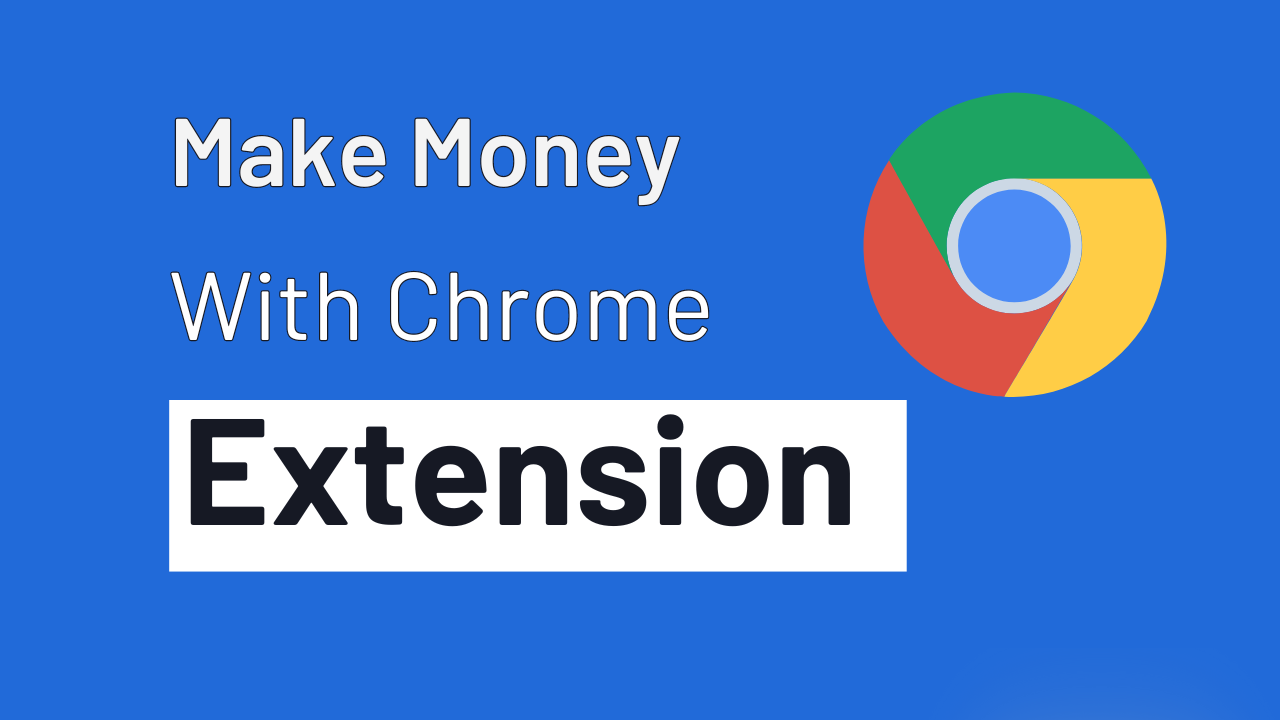The digital world is changing fast. Chrome extensions are essential for all users. They help you to improve the browsing experience. These small add-ons range from productivity boosters to entertainment enhancers.
They play a vital role in our online engagements. Many users keep thinking, how do these Chrome extensions earn money?
Through some of the monetization strategies used by developers. Today, we will look at Chrome extensions and how they make money. We will explore each method in detail.
How Do Chrome Extensions Make Money: The direct answer is-
Chrome extensions can earn money in many ways via various monetization methods. This could be through direct sales, for example, by charging for your extension in the Chrome store. You could need payment to download or use it. Another typical form is the freemium model.
In this model, the essential extension is free. But premium features or subscriptions are chargeable. Extensions are also common for in-extension advertising. This includes display ads or affiliate marketing.
In affiliate marketing, developers earn commissions from promoted products or services. Some extensions may offer features that must pay a fee. They may also have other advanced functions.
In some cases, developers will sponsor their extensions. They may also bundle them with other software. These are aligned with the end goal. The goal is to give value to users and make a safe income for the app developer.
The 14 Ways to Make Money with Chrome Extensions
Way 01: Freemium Model
Freemium – This is a popular monetization strategy for Chrome extensions. While it offers a bare framework for no cost, it encourages the download and use of the extension. After this, a paid plan is required to add advanced features or use premium services. This model is the sweet spot between reaching the most people and banking on sales.
Way 02: Basic vs. Premium Features
Freemium is the model where basic enough stuff to make your life work is free, and everything else is paid. For example, a password manager extension could be accessible for a few passwords, so users must pay.
Users could subscribe to the app to get unlimited storage. They could also get extra security. By doing so, we are lowering the barrier to entry, allowing users to start using the extension sooner. So once they see the premium’s benefits and possibilities, they will pay for some of that feature.
Way 03: Subscription Plans
Many Chrome extensions use subscription plans. They are a part of the extensions’ business model to get monthly revenue. This model is very efficient for service extensions.
These include VPNs, cloud storage, and website editors. Charging a monthly or yearly fee means that developers earn a reliable income. They can use it to develop the extension further.
The subscription model also encourages developers to keep their extensions fresh and timely. Ongoing value is the only way they will maintain subscribers.
Way 04: In-App Advertising
Through In-App Ads: This is another popular way to make money from Chrome Extensions. It might show ads in the extension interface or when a specific action was made. This technique can be rewarding. But, it must be done cautiously. It must not interfere with user experience.
Way 05: Banner Ads and Pop-ups
Different extensions can use banner ads, pop-ups, or video ads. For example, if you have an extension that shows weather forecasts, it could show a banner ad at the bottom of the forecast page.
A game-oriented tweak could show popups after you finish your game. These ads can be targeted based on user behavior and preferences. So they are more effective and make more money.
Way 06: Affiliate Marketing
Some ad extensions also use affiliate marketing strategies. They do this alongside classic ad formats. This strategy includes advertising affiliate products or services. You receive a percentage for every sale or action through your plugin.
A shopping assistant extension could recommend partners’ websites. The sites offer deals. The extension earns a commission through the links when a user buys something. This method could work well. However, the promoted products need to resonate with the extension’s users.
Way 07: Data Monetization
Data monetization can be controversial. But a few Chrome extensions still use it for revenue. User data is collected. Then, it is sold to third parties, like advertisers or market researchers. But ProNumber also sounds privacy alarm bells. To deal with this, you have to follow strict data protection rules.
Way 08: User Data Collection
These extensions collect data to make money. They gather info on user behavior, preferences, and demographics. Such data may be your destination, search words, or patterns of use—poster-level data.
Developers can also analyze this data. They can then sell the information. It shows how users interact with the platform to interested parties. For example, market research firms pay to know the taste of the general consumer. They want to know about a particular sector.
Way 09: Paid Apps and IAPs
A more direct approach is to allow Chrome extensions to sell directly. The other option is to make a profit directly. This is because some developers initially release their extensions as paid products. The next best thing would be to offer a free version with in-app purchases (IAP) for additional features or content.
Way 10: One-Time Purchases
Users should pay to download and use extensions. They are provided as a single-time buy and install. The standard model is typically used for concrete tools or extensions with rare, high-value features. One such case is a new pro photo editor or an extension. It can provide advanced tools for the developer.
Way 11: In-App Purchases
The in-app purchases help users buy extra features or content. They buy these things directly from the extension. It is a flexible model. It can satisfy many use cases and budget needs. For example, a task management extension might provide some key features for free.
But it asks for payment for more features. These include project templates, theme support with other apps, and extra cloud storage. It will allow developers to make money with their extensions. Users can contribute in several ways and shape their experience as they like.
Way 12: Sponsorships and Partnerships
Chrome extensions can earn money through sponsorships and partnerships with other companies. Developers can monetize without having to charge directly by partnering with brands their user base cares about.
Way 13: Sponsored Content
The sponsor’s brand or message becomes a part of the extension’s user experience and sponsored content. These include spoons, in this case, e-red, workout, and nutrition plans by a health supplement company.
This happens with a fitness tracker extension. This not only provides the extension with an income but also provides you with the type of content you have opted to see!
Way 14: Strategic Partnerships
This can mean anything from co-branded extensions to integrated services. For example, a note-taking extension could connect with a primary cloud service provider. The connection would provide great, automatic file syncing and storage.
These partnerships add utility and attractiveness to the extension. They offer a way to make money from it. They do this by using a revenue-sharing model between the parties.
Also Read: Subscription vs One Time Purchase: A Definitive Guide for Smart Shoppers
Ethical Considerations Regarding Make Money with Chrome Extension

Consequently, when handling user data, ethical concerns take center stage. To alleviate this, developers must describe the information they collect and use. Both obtaining explicit user consent and giving options to opt-out are essential principles.
Developers who do not respect these laws will face consequences. These laws include the General Data Protection Regulation (GDPR) and the California Consumer Privacy Act (CCPA). They also have to guarantee personal data protection.
Conclusion
When we ask “How do Chrome extensions make money?” question, we open up a world where monetizing a Chrome extension can lay in various tactics. However, developers have many opportunities to make money.
These go beyond the freemium model and in-app advertising. One way is data monetization; the other is paid extensions and strategic partnerships. Multiply these options by the catalog’s size.
Add in each one’s specific drawbacks and advantages. The result is a thorny issue to solve. You must make the catalog profitable without alienating the users.
The Chrome extension space keeps moving and growing. This makes it vital for developers and users to learn about making money. This applies to you, the developer who may want to make money from your extension.
It also applies to you, the user who just wants to understand its economics. Such knowledge, however small, can provide significant insights into the digital world we navigate daily.
We hope you have found this guide to Chrome extension monetization enlightening. You can comment if you have any specific things you want to say or ask about this topic. More feedback and experience from you are always appreciated!










